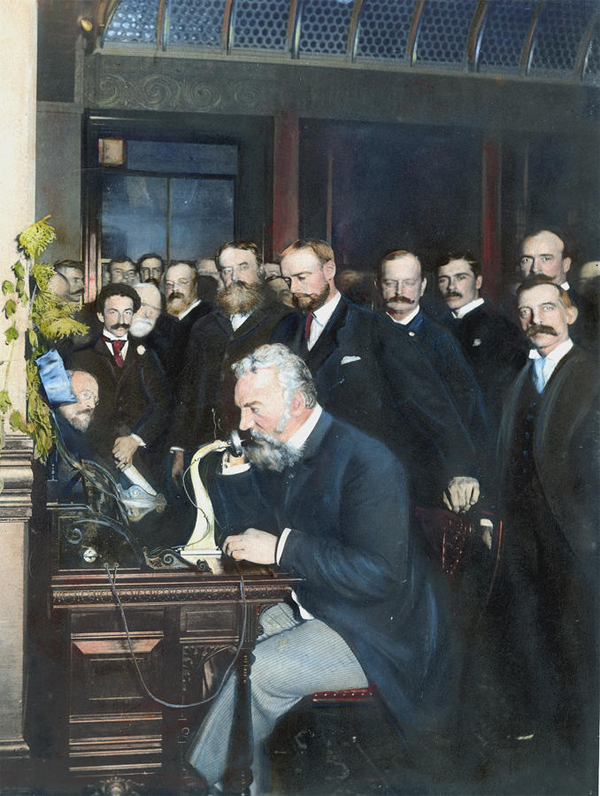
Speech transmitted by telephone on March 10, 1876
Speech transmitted by telephone: On this day, the first discernible speech is transmitted over a telephone system when inventor Alexander Graham Bell summons his assistant in another room by saying, “Mr. Watson, come here; I want you.” Bell had received a comprehensive telephone patent just three days before.
Alexander Graham Bell, born in Edinburgh, Scotland, in 1847, was the son of Alexander Melville Bell, a leading authority in public speaking and speech correction. The young Bell was trained to take over the family business, and while still a teenager he became a voice teacher and began to experiment in sound. In 1870, his family moved to Ontario, Canada, and in 1871 Bell went to Boston to demonstrate his father's method of teaching speech to the deaf. The next year, he opened his own school in Boston for training teachers of the deaf and in 1873 became professor of vocal physiology at Boston University.
In his free time, Bell experimented with sound waves and became convinced that it would be possible to transmit speech over a telegraph-like system. He enlisted the aid of a gifted mechanic Thomas Watson, and together the two spent countless nights trying to convert Bell's ideas into practical form. In 1875, while working on his multiple harmonic telegraph, Bell developed the basic ideas for the telephone. He designed a device to transmit speech vibrations electrically between two receivers and in June 1875 tested his invention. No intelligible words were transmitted, but sounds resembling human speech were heard at the receiving end.
On February 14, 1876, he filed a U.S. patent application for his telephone. Just a few hours later, another American inventor, Elisha Gray, filed a caveat with the U.S. Patent Office about his intent to seek a similar patent on a telephone transmitter and receiver. Bell filed first, so on March 7 he was awarded U.S. patent 174,465, which granted him ownership over both his telephone instruments and the concept of a telephone system.
Three days later, on March 10, Bell successfully tested his telephone for the first time in his Boston home. In May, he publicly demonstrated the invention before the American Academy of Arts and Sciences in Boston, and in June at the Centennial Exposition in Philadelphia. In October, he successfully tested his telephone over a two-mile distance between Boston and Cambridgeport.
In 1877, he formed the Bell Telephone Company with two investors, and the first commercial applications of the telephone took place. Within a few months, the first of hundreds of legal challenges to Bell's telephone patent began. The U.S. Supreme Court eventually upheld Bell's claims, and the Bell Telephone Company enjoyed a monopoly on the telephone until the expiration of the patent in 1894. After 1878, however, the legal battles were out of Alexander Graham Bell's hands because he sold his company to a group of financiers. The company, which after 1899 was led by the parent American Telephone and Telegraph Company (AT&T), eventually grew into the largest corporation in the world.
Alexander Graham Bell continued his experiments in communication, inventing the photophone, which transmitted speech by light rays, and the graphophone, which recorded sound. He continued to work with the deaf, including the educator Helen Keller, and used the royalties from his inventions to finance several organizations dedicated to the oral education of the deaf. He later served as president of the National Geographic Society. Beginning in 1895, he experimented with the possibility of flight and built giant man-carrying kites and a hydrofoil craft. He died in 1922 at his summer home and laboratory on Cape Breton Island, Canada.
History Channel / Wikipedia / PBS / Encyclopaedia Britannica / Encyclopaedia Britannica / Smithsonian / Library of Congress.gov / National Archives.gov
Wikipedia.org Photo: Alexander Graham Bell, credit Fine Art Print - Granger. Alexander Graham Bell, in his search for lightweight structures for flight, discovered the octahedron-tetrahedron complex (the octet truss) in 1903, and used it for constructions such as kites, a windbreak and an observation tower. Alexander Graham Bell, kite
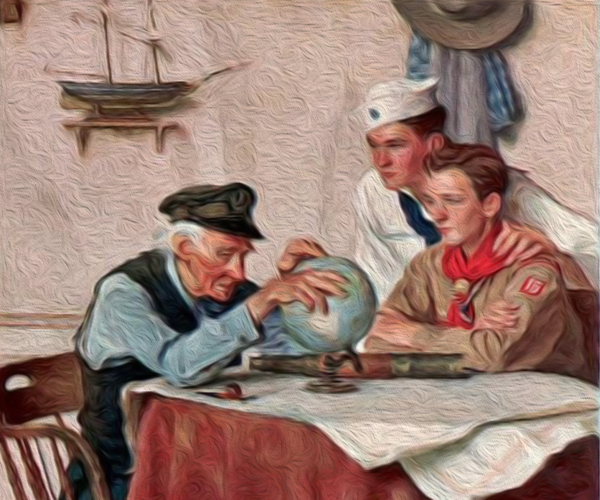
Understanding Military Terminology - go/no-go
(DOD) Go / No-go:
A critical point at which a decision to proceed or not must be made. Wikipedia / Joint Publication 3-02

The Old Salt’s Corner
Flight Deck Jersey Colors
While watching flight operations on the carrier you will notice several different types of crew supporting the aircraft on deck. These crews each wear a different color jersey to identify their function.
Jersey Colors
RED: Ordnancemen, repair parties and fire fighters.
BLUE: Aircraft handling, chockman, and elevator operators.
GREEN: Aircraft maintenance men.
YELLOW: Aircraft movement directors and catapult officers.
BROWN: Plane captains.
PURPLE: Fuelers who refuel aircraft between missions.
WHITE: Other (medical team, air wing LSOs, sighting teams, safety personnel, and visitors).

“I’m Just Sayin’”
Beauty is only skin deep, but ugly goes clean to the bone.

“Thought for the Day”
“Keep your face to the sunshine and you cannot see a shadow.”
~ Helen Keller

“What I Have Learned”
“Success is not forever, and failure isn't fatal.”
~ Don Shula

Bizarre News (we couldn’t make up stuff this good – real news story)

Luis Moreno Jr., 26, was pursued by police in Fort Lee, N.J., after he entered the carpool lane approaching the George Washington Bridge in January because he appeared to be alone in his SUV.
After ignoring several signals to pull over, he finally stopped and, when informed of his offense, told the officer, “I have two passengers in the back” and rolled down a window to show them (in the vehicle’s third row), apparently satisfying the officer.
However, as Moreno pulled away, one passenger began screaming and banging on the back door. Moreno sped off with his hostages but was subsequently stopped again and charged with kidnaping and criminal restraint (but no HOV violation!). New York Daily News

Mr. Answer Man Please Tell Us: There are vitamins called A, B, C, D, E, and K. But what happened to vitamins F, G, H, I, and J?
Most of those missing vitamins between E and K exist, but for one reason or another - mostly scientific disorganization — are now more often called by different names.
Our first five vitamins, A, B, C, D, and E, got their sequential names when they were discovered, one after the other, during the early-20th-century search for cures to then-common diseases. Many of these arose from limited intake of produce and other fresh food, which used to be much tougher to come by: scurvy was a vitamin-C deficiency that made sailors’ gums bleed; beriberi was caused by lack of vitamin B (later B1), found in whole grains, meat, and legumes. The general gloominess of English weather was responsible for rampant rickets, due to insufficient vitamin D.
After these breakthroughs, the great vitamin hunt was on, with most of the alphabet put to use at some point naming the results. Originally the assumption was that each new discovery would get the next available letter, but the system went to crap when (1) many of the post-E vitamins were later re-identified as vitamins in the B complex, bearing designations between B2 and B12 (please don’t ask what happened to 4, 8, 10, and 11), and (2) the Germans rebelled and decided to assign letters based on medical relevance rather than order of discovery. Here’s a breakdown:
Vitamin F: Known today as the essential fatty acids, of the omega-3 and omega-6 varieties. Should we seek these out? Possibly: they might decrease your risk of cardiovascular disease, but (warns the Mayo Clinic) they also might make you bleed and/or smell like fish.
Vitamin G: The American name for what the Brits called B2. Eventually a truce was declared, and now we call it riboflavin.
Vitamins H and I: H is one that got named under the German scheme — it stands for Haut, German for ”skin”, because that’s what it was thought to strengthen. It’s now called B7 or biotin. (Something similar happened with vitamin K, named for Koagulation.) Vitamin I was said to have a role in digestion, and has since been identified with various members of the B group.
Finally, vitamin J: Beneficial to guinea pigs but unneeded by people, it didn’t make the cut.
The second half of the alphabet gets even messier: the bulk of the later would-be vitamins proved not to figure significantly in human growth and consequently were stripped of their status.
For starters, there was vitamin L, so named for its apparent role in rat lactation. Better known as anthranilic acid, L1 is now closely regulated by the DEA: as one of the primary compounds used in the synthesis of the powerful recreational sedative methaqualone, aka Quaaludes, it falls into that intriguing category of substances that are fun but potentially fatal.
Vitamin M is now called folic acid or B9; vitamin P was a name given to the compounds called flavonoids, which apparently contribute more to plant pigmentation than human well-being; and Q is an antioxidant called coenzyme Q or Q10. Vitamin N may have been thioctic acid, said to have helped with “burning mouth syndrome”.
Vitamin O goes all but unmentioned in the literature; the vitamin R story is nearly as murky. Vitamins S, T, U, V, W, X, Y, and Z either turned out to be inessential to human health (S promotes growth in chicks, T heals wounds in insects) and thus failed to clear the vitamin threshold, or they never existed.
The lesson in all this? Stop worrying about vitamins. Daily multivitamins in particular are a first-world solution to a third-world problem — the average American consumes plenty of the recommended daily amounts naturally without assistance in pill form. Much of the food in the developed world is injected with vitamins before it even reaches our plates. Certain vitamins, like A, can even be toxic if you get too much. A U.S. Preventative Services Task Force reviewing 27 studies covering almost half a million people found no evidence that vitamin supplements offer a benefit for heart disease, or delay death from any cause.
Gizmodo
Research: Science Clarified
• Wikipedia
• San Francisco Chronicle
• Nobel Prize.org

Where Did That Saying Come From?
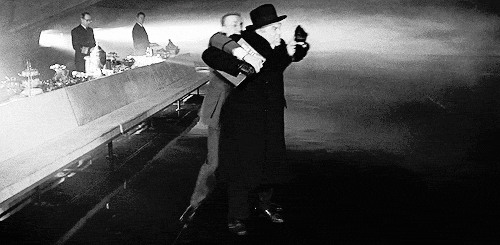
“Catch 22:” is the title of a novel published in 1961, written by Joseph Heller and based on his experiences as a World War II bomber pilot in Europe.
The central character in ”Catch 22” is the pilot Yossarian, whose all-too-accurate perception of the futility and insanity of war leads him to seek a psychiatric exemption from flying further combat missions. But Yossarian runs smack into what Heller dubbed “Catch 22” (“catch” in this sense meaning “snag”). As Heller put it, “There was only one catch, and that was Catch-22…. If he flew them [more missions] he was crazy and didn’t have to; but if he didn’t want to he was sane and had to.”
In inventing “Catch 22”, Joseph Heller had really only given a name to a particularly modern sort of bureaucratic conundrum, defined by the Oxford English Dictionary as “a set of circumstances in which one requirement, etc., is dependent upon another, which is in turn dependent upon the first.”
Wikipedia
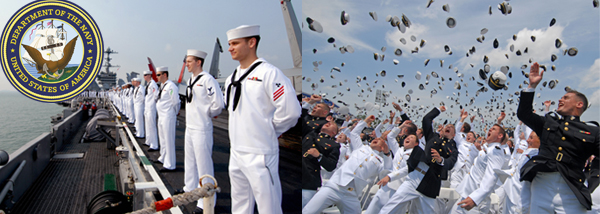
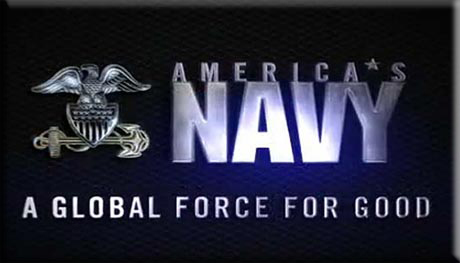
NAVSPEAK aka U.S. Navy Slang
Booter: A Sailor that has just reported to his first duty assignment after completing Recruit Training.
FAG: Fighter Attack Guy - an F/A-18 Hornet/Super Hornet pilot or naval flight officer (“NFO”). Also a “Fine Academy Graduate” used as a derogatory term to refer to graduates of the Naval Academy. Also “Forward Area Guy” used as derogatory term for submarine personnel other than engineering department, brought upon due to a COB's ban of the term “Coner”.
Queer: Derogatory term used by sailors when referring to U.S. Air Force personnel. Nickname for the EA6B Prowler usually used by personnel in the aviation community, it is derived from the shape of the refueling probe on the nose of the aircraft resembling a “broken wrist” and the “Q” at the ending of the VAQ designation of the Prowler squadrons.
Sand Crab: A civilian in Civil Service positions working for the U.S. Navy. Very derogatory.
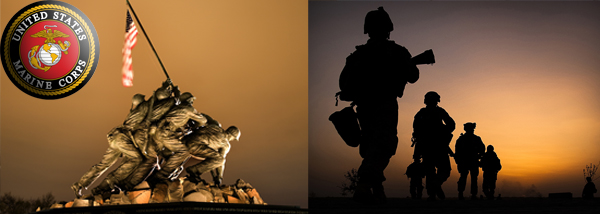

Just for you MARINE
Delayed Enlistment Program: A recruiting procedure which allows a person to enlist in the inactive reserve prior to being ordered to active duty. It legally binds the person to enlistment and gives him or her seniority when ordered to active duty.
DELTA: (Commtalk) D.
Delta Delta: Dependent Daughter.
Delta Hotel: Dependent Husband.
Delta Sierra: Dumb Shit. Also Dependent Son.
Delta Whiskey: Dependent Wife. From the radio phonetics used by Military Police for the abbreviation DW.

Naval Aviation Squadron Nicknames
VFA-37 - Strike Fighter Squadron 37: “Ragin’ Bulls”
NAS Oceana, Virginia

The Strange, Mysterious or Downright Weird
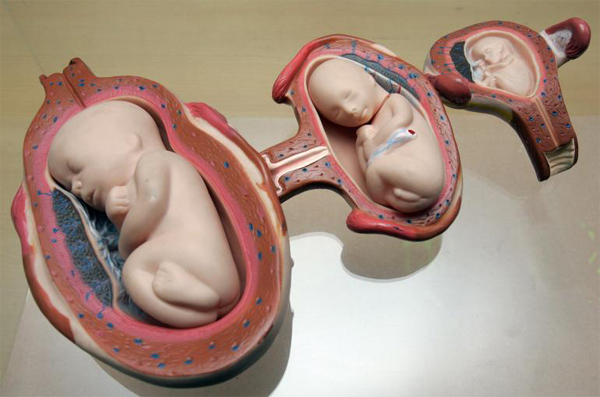 .
.
A team of doctors in Hong Kong have revealed news about a new study done on a baby girl that was born back in 2010 with what they believed to be two tumors growing in her abdomen. The study ended up revealing that the baby was born with a rare condition known as “fetus-in-fetu”, which caused her to be born “pregnant” with twins.
What the doctors has assumed to be tumors actually turned out to be two fetuses which were developed to about the stage of 8 to 10 weeks. They had arms, legs, a defined spine, rib cage, intestines, “primitive” brain matter and even an umbilical cord.
Obviously, the medical journal states that it would have been impossible for the baby to conceive on her own, so of course the fetuses were fertilized by the parents and it just went to the wrong place.
Apparently, “fetus-in-fetu” happens once in about every half million births, however it has only been reported about 200 times worldwide. The baby that was born with this condition in Hong Kong has recovered without any additional complications and will live a normal life despite the abnormal birth condition.
Medical Daily

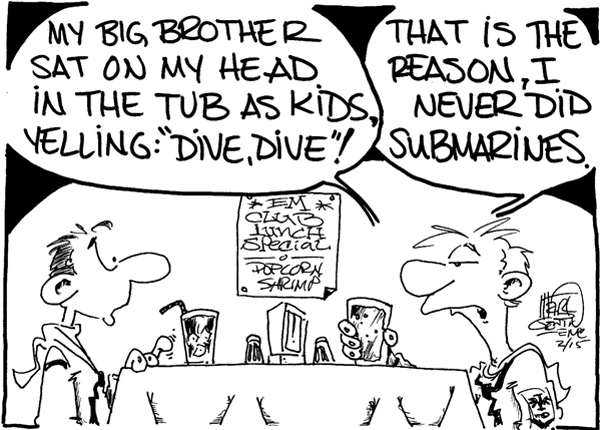
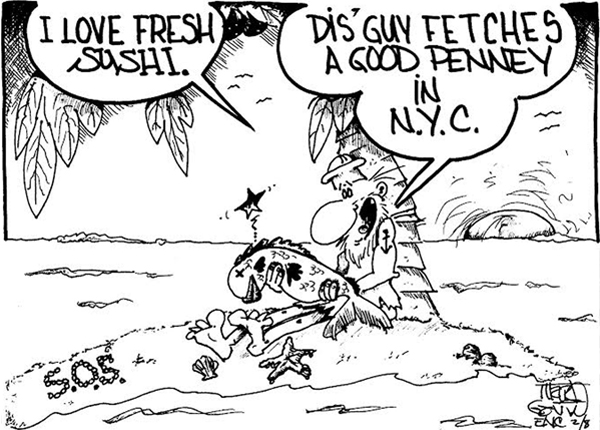
SONG FACTS
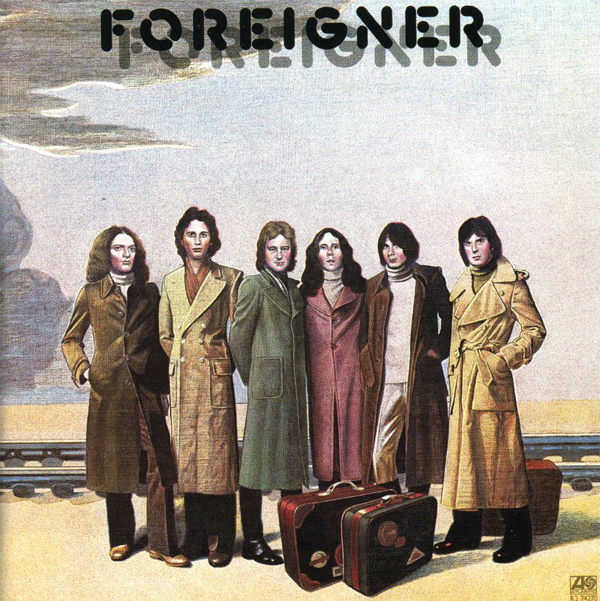
“Feels Like The First Time” - Foreigner
Album: Foreigner
Released 1977 
This was Foreigner's debut release and their first hit in both the US and UK, despite originally flopping on its initial British release. Mick Jones, who is the British founder of Foreigner (named for the bi-nationality of the band - the other members were American), wrote the song himself. He told us: “'Feels Like The First Time' was written about a bit of a change in my life. I was coming out of a previous marriage with somebody I'd met in France. I'd gone back to England and then finally made the journey to America while I was in the band Spooky Tooth. And to me it was this challenge of really going for a new start in my life. And that just came naturally out of the blue. People probably thought, Well, this is a song that he's written specifically for this album. In hindsight I guess that's a natural feeling, but to me it was signifying a new start. I'd met somebody, I got re-married and moved with her to America, and that was the song that described that experience.”
This featured the vocals of Lou Gramm, who was added to the band by Mick Jones after about 50 auditions of singers. Jones told Billboard magazine that he first came across Gramm's voice while he was writing this song: “When I heard his voice on an album that I'd been given of his band, Black Sheep, I was actually in the midst of writing 'Feels Like the First Time.' I'd had a few demos from people who'd sent stuff in, and I was listening to them. The moment I heard Lou's voice, it clicked.”
Mick Jones music career started in France, where he spent 6 years learning to write, produce and perform songs. In his early 20s he returned to England with the goal of eventually becoming a successful musician in America. Spending time in the band Spooky Tooth with Gary Wright of “Dream Weaver” fame, he made it to the States as an A&R scout before joining the Leslie West Band and forming Foreigner. Said Jones: “'Feels Like The First Time' was the first song I wrote for the new chapter. And that lead subsequently to putting a band together. There I was, finally the primary writer, and that song set the ball rolling for me. When that first album came out, it was just a question of, Well, we've set a huge precedent, where do I go from here? So I had to work pretty hard at those songs and try to hone my craft again. There was definitely a lot of pressure in those early years, and there still is. It's a challenge to write songs that are accepted by a large audience and to retain integrity about what you do. I've been fortunate that a lot of those songs have stood the test of time, they still get a lot of radio play, there's still a lot of popularity attached to them. And to me that means a lot, that I have a worldwide audience, and pretty much anywhere we go in the world, they're aware of the body of work that I've been able to achieve.”
This was the first song penned by Mick Jones that he ever heard played on the radio. He described his feelings to Lords of Metal on hearing it for the first time: “I was driving to Long Island to go to the sea when this song came on. I was on the bridge and in my mirror you could see the big city. On the radio they said, there is a new band and they have a great song which we will play now and that was my song. I turned the car window down and I started to drive very fast. I will never forget that moment!”
This was song that got Foreigner a record deal in America. They were known as Trigger when they sent a tape with this track to Atlantic Records, which was home to Led Zeppelin, AC/DC and Yes. A young executive named John Kalodner liked the song, saw them perform, and signed them to a deal. Kalodner would later become famous for signing Aerosmith to Geffen Records in the '80s and engineering their comeback.
Foreigner.com / Billboard / Wikipedia / All Music
Image: “Feels Like The First Time” by Foreigner
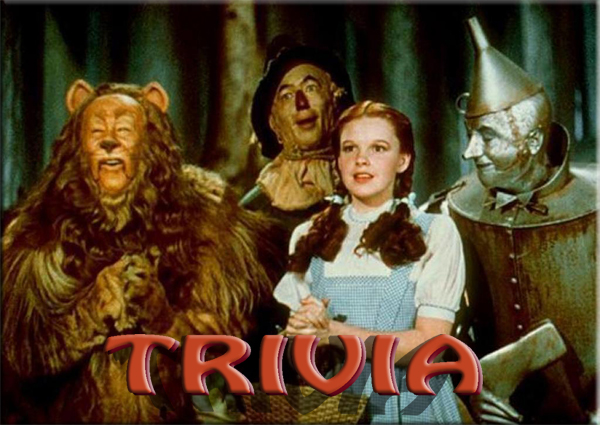
Trivia
● In the Wizard of Oz Dorothy's last name is Gail. It is shown on the mail box.
● During the Second World War the American automobile industry produced a grand total of 139 cars. Instead, that huge industrial capacity had been transformed into the “arsenal of democracy”, turning out, in breathtaking volumes, the material that allowed the Allies to win the war. The Ford Motor Company alone had more military production than the entire Italian economy in the war years.
● In 1986 Danny Heep became the first player in a World Series to be a designated hitter (DH) with the initials “D.H.”
Military Trivia
● George Armstrong Custer was court marshaled in 1867 for what?
A: He struck a fellow officer.
● In October 1939 what British battleship was sunk by torpedo with a loss of 800 lives?
A: General John J. Royal Oak.
● Who was the American pilot shot down over Russia in 1960?
A: Francis Garry Powers

A Test for People Who Know Everything
What was the first star placed on the Hollywood Walk of Fame?
● Answer for People Who Do Not Know Everything, or Want to Verify Their AnswerWikipedia
Answer to Last Week's Test
In 1927, tire mogul Harvey Firestone gave President Calvin Coolidge a gift. What was it?
Answer: Tire mogul Harvey Firestone gave President Calvin Coolidge a pygmy hippopotamus in 1927. Today, many of the pygmy hippos in US zoos are that one's descendants..

Joke of the Day
A man in the Florida supermarket tries to buy half a head of lettuce.
The very young produce assistant tells him that they sell only whole heads of lettuce. The man persists and asks to see the manager. The boy says he'll ask his manager about it.
Walking into the back room, the boy said to his manager, “Some asshole wants to buy half a head of lettuce.”
As he finished his sentence, he turned to find the man standing right behind him, so he added, “And this gentleman has kindly offered to buy the other half.”
The manager approved the deal, and the man went on his way.
Later the manager said to the boy, “I was impressed with the way you got yourself out of that situation earlier. We like people who think on their feet here. Where are you from, son?”
“Canada, sir”, the boy replied.
“Well, why did you leave Canada?” the manager asked.
The boy said, “Sir, there's nothing but whores and hockey players up there.”
“Really?” said the manager. “My wife is from Canada.”
“No shit?” replied the boy. “Who'd she play for?”


























